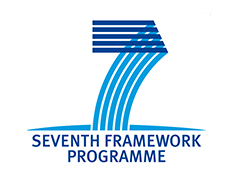Print

Evolution of Pathogen and Host Diversity (DIVERSITY)
Details
Locations:UK
Start Date:Jun 1, 2011
End Date:May 31, 2017
Contract value: EUR 1,670,632
Sectors: Research & Innovation
Description
Programme(s): FP7-IDEAS-ERC - Specific programme: "Ideas" implementing the Seventh Framework Programme of the European Community for research, technological development and demonstration activities (2007 to 2013)
Topic(s): ERC-AG-LS8 - ERC Advanced Grant - Evolutionary, population and environmental biology
Call for proposal: ERC-2010-AdG_20100317
Funding Scheme: ERC-AG - ERC Advanced Grant
Grant agreement ID: 268904
Objective:
The study of host-pathogen systems is of central importance to the control of infectious disease, but also provides unique opportunities to observe evolution in action. Many pathogen species have diversified under selection pressures from the host; conversely, genes that are important in host defence also exhibit high degrees of polymorphism. This proposal divides into two parts: (1) the evolution of pathogen diversity under host immune selection, and (2) the evolution of host diversity under pathogen selection. I have developed a body of theoretical work showing that discrete population structures can arise through immune selection rather than limitations on genetic exchange. The predictions of this framework concerning the structure and dynamics of antigenic, metabolic and virulence genes will be empirically tested using three different systems: the bacterial pathogen, Neisseira meningitidis, the influenza virus, and the malaria parasite, Plasmodium falciparum. The current theory will also be expanded and modified to address a number of outstanding questions such whether it can explain the occurrence of influenza pandemics. With regard to host diversity, we will be attempting to validate and extend a novel framework incoporating epistatic interactions between malaria-protective genetic disorders of haemoglobin to understand their intriguing geographical distribution and their mode of action against the malarial disease. We will also be exploring the potential of mechanisms that can organise pathogens into discrete strains to generate patterns among host genes responsible for pathogen recognition, such as the Major Histocompatibility Complex. The co-evolution of hosts and pathogens under immune selection thus forms the ultimate theme of this proposal.

